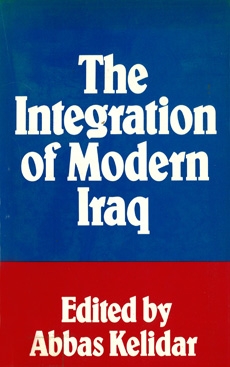
The Integration of Modern Iraq
Abbas Kelidar
Croom Helm
Many factors have made Iraq a country of considerable importance in the modern world. Its strategic position, its oil resources, as well as rapid economic development have made Iraq a country to be reckoned with, not only in regional Arab politics, but also in world affairs. It is playing a leading role in determining the nature of the newly emerging economic structure which governs the relationship between the developing countries and the highly industrialized world. And yet Iraq is one of the least studied countries of the Middle East.
This collection of essays, by a number of Iraqi and British scholars, examines some of the most crucial problems affecting the political evolution and economic development of modem Iraq. These concern the origins of the constitutional parliamentary system of government and the questions of social conflict it attempted to resolve upon the establishment of the modern state, the formation of a new political elite and its pan-Arab nationalist aspirations.
The phenomenon of civil-military relations is traced to the foundation of the Iraqi armed forces indicating the degree of politicisation and the resultant radicalization, which has set Iraq on a coup syndrome for many decades.
The impact of oil revenue expenditure on society and the economy is examined and its effects on the agricultural as well as the industrialized sectors are analysed and assessed. Finally some of the prominent features of Iraqi politics, such as the Kurdish problem and communist influence, are outlined.
Abbas Kelidar is a Lecturer in Middle East Politics at the School of Oriental and African Studies, University of London
| 